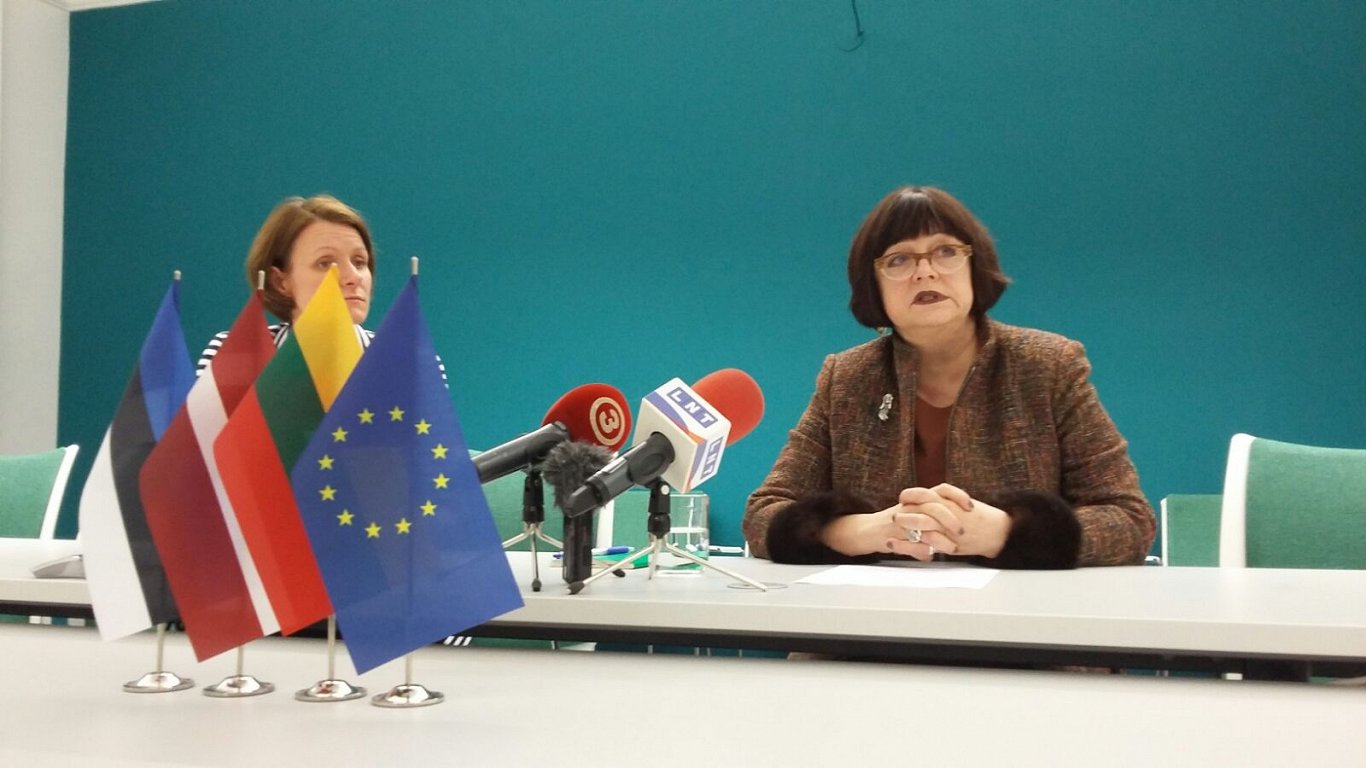Rubesa told the hastily-convened press conference she had not received any official notice of a no-confidence vote, but that she had a ten-minute talk with Estonia's Riia Sillave, the head of the company council.
She did admit that there's long-standing mistrust between the board and the council of the Baltic joint venture.
Rubesa claims that, in the two years since she's been head of the board at RB Rail, there's been constant opposition from several council members and beneficiaries. While she did not reveal any names, it's understood that the Lithuanian side has voiced the fiercest opposition.
"I am aware that I have been an 'uncomfortable' CEO who did not please the special interests of the shareholders and even beneficiaries, by choosing to follow the high values of corporate governance, transparency, honest project implementation in the interests of the general public of the three countries – looking beyond the established freight patterns of the existing national railway companies," she said.
In a statement posted on the official Rail Baltica site, she said:
"It has been an honor, mainly a pleasure and certainly a steep learning curve in complexity management to lead the Rail Baltica project for the past two years. As CEO and Chairperson of the Management Board of RB Rail, right up to the very last minute I had constant resistance from some Supervisory Board Members and Beneficiaries of the Rail Baltica global project in Estonia, Latvia and Lithuania to ensure its implementation transparently and effectively, based on the project’s stated corporate values. My personal vision – this project, paid by the Baltic and EU tax payers, must bring true and tangible socio-economic value to the general public and economies of Estonia, Latvia and Lithuania, to ensure the largest possible European added value beyond simply building railway infrastructure as such. Moreover, the project must be governed in the most effective manner, which currently is not the case."
The pressure took the form of attempts to influence tenders and personnel recruitment for top management positions. This, Rubesa thinks, has had bad influence on implementing the Rail Baltica railway project effectively.
Reading between the lines of her statement there are clear hints of repeated conflicts of interest and vested interests among people associated with the project. These, she has been determined not to allow, she said.
"I am proud that I have stood strong and resisted any conflict of interest situations created by some Supervisory Board members taking decisions while at the same time sitting on two chairs – as shareholders and implementing bodies or even potential suppliers, with an attempted top-down interference in, for example, tender processes and, thus, a continuous demand to sacrifice our internationally established procurement practices."
"Within the last two years, the operations of the RB Rail board have been encumbered as we have to deal with the consequences of slow decision making on the part of the council. It has affected the company's ability to move forward in implementing the project and carry out specific activities on time," she said.
"In truth, the council of the joint venture has constantly restricted RB Rail's ability, as a joint entity for implementing the project, to ensure effective organization of work. This has made the implementation of the project more and more challenging," she said.
She admitted that she does not have any evidence she could use to turn to the authorities, but that she will remain at her current post until an official decision, which could be expected at the council meeting slated for March 22.
"Until there's a situation in which all council members vote against me, I'll continue working conscientiously," she said.
The attempt to oust Rubesa by Lithuanian and Estonian shareholders coincides with the first announcements of big tenders in the multi-billion project. The news of the attempt to throw Rubesa from the train project was leaked to media from unnamed sources.
2018 will be the year when almost €6 billion are divvied up for the largest infrastructure project the Baltics have seen within the past 100 years. The current power struggles in the company seem to be related to economic interests - which Rubesa has long said she was put in place to counterbalance.
The no-confidence vote against Rubesa has come as a shock to the Latvian Transport Ministry. Minister Uldis Augulis (Greens and Farmers Union) stressed that Latvia is satisfied by Rubesa's performance and that Latvian representatives at the council won't support for ousting Rubesa.
"Of course there are some delays in implementing the projects, but the matters are all manageable, I think. To us, it's more important that the project follows through and that there are no problems due to discord within," said Augulis.
"Because the third CEF [Connecting Europe Facility] call is about to happen right now, and we can't afford to lose it. Our neighbors should be sufficiently pragmatic, not try to change something in a rush or sow some inner discord," he said.






























